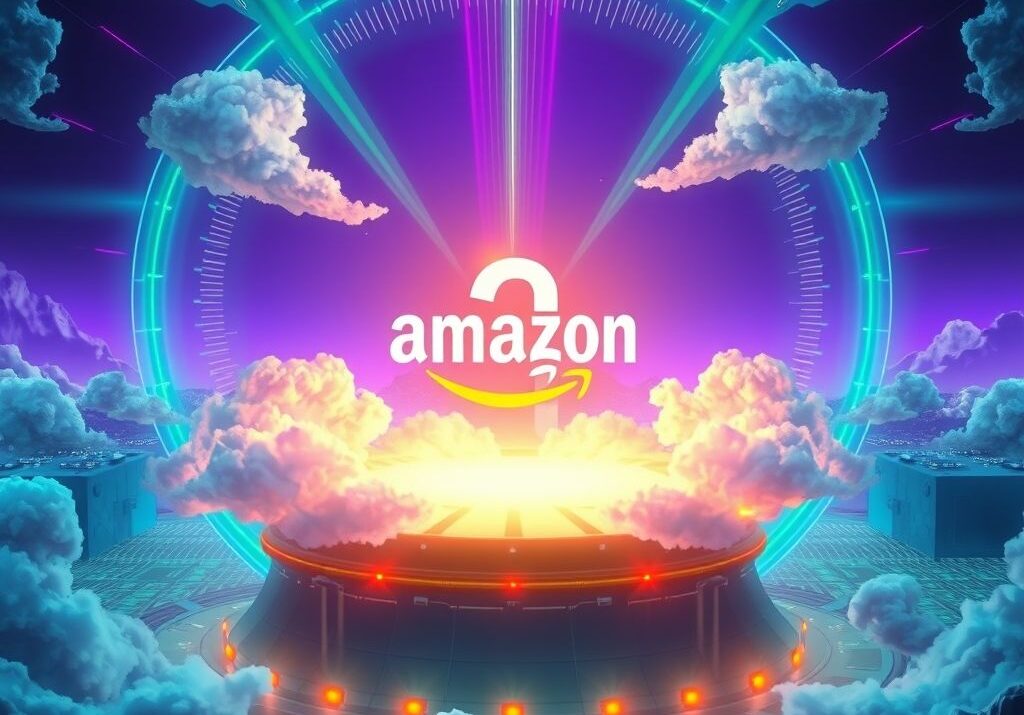Ever feel like the world’s moving faster than ever? Well, buckle up, because Amazon’s latest move is about to accelerate things even more. Forget whispered rumors – Amazon Web Services (AWS) is officially jumping headfirst into the nuclear energy pool. They’ve just inked a deal to snag a whopping 1.92 GW of power from the Susquehanna nuclear power plant, and honestly, it’s a signal that things are shifting in a big way.
I stumbled upon this news in a TechCrunch article titled “Amazon Joins the Big Nuclear Party, Buying 1.92 GW for AWS,” and it got me thinking. For a company that powers so much of the internet, this isn’t just a simple business deal. It’s a statement about their commitment to cleaner energy and the future of cloud computing.
Why is this a big deal? Let’s break it down.
Cloud computing devours electricity. All those servers humming away in data centers? They need a lot of juice. As cloud services get more ingrained in our lives – from streaming videos to running entire businesses – the demand for power only goes up.
Amazon’s move to nuclear energy is a direct response to this demand, and a way to meet it more sustainably. According to the U.S. Energy Information Administration (EIA), nuclear power plants are some of the most reliable sources of electricity, operating at full capacity over 90% of the time. Plus, they produce virtually no greenhouse gas emissions during operation.
This aligns with Amazon’s pledge to power its operations with 100% renewable energy by 2025. While nuclear isn’t technically “renewable” in the same way solar and wind are, it’s a low-carbon alternative to fossil fuels and a vital component of a balanced energy strategy.
This is not a new market, Amazon and Talen are revising a deal already in place, so it’s just a matter of going more and more into nuclear
So, what are the key takeaways?
- Big Tech is serious about clean energy: Amazon’s move shows that major players are putting their money where their mouth is when it comes to sustainability. It’s no longer just talk; it’s action.
- Nuclear is becoming more appealing: With advancements in reactor technology and growing concerns about climate change, nuclear power is shedding its negative image and gaining traction as a viable energy source. The International Energy Agency (IEA) highlights nuclear’s crucial role in achieving net-zero emissions goals.
- Reliability matters: Cloud services need constant, dependable power. Nuclear offers a level of reliability that intermittent sources like solar and wind can’t always guarantee.
- This could set a trend: If Amazon sees success with this partnership, other cloud providers are likely to follow suit, driving further investment in nuclear energy.
- It’s a step forward for Cameroon (and the world): While Cameroon’s energy landscape is unique, this signals a broader global shift. As we look to build a sustainable future, diverse energy sources, including nuclear, may play an essential role in powering our digital lives.
This move by Amazon underlines something crucial: The digital world depends on the physical one. How we power our data centers directly impacts the planet. It’s encouraging to see companies like Amazon taking proactive steps to find cleaner, more reliable energy solutions. The future of cloud computing may very well be nuclear.
Frequently Asked Questions (FAQ)
- Why is Amazon buying nuclear power? Amazon needs a reliable and low-carbon energy source to power its massive data centers and meet its sustainability goals.
- Is nuclear power safe? Modern nuclear power plants have multiple safety features and regulations to prevent accidents. According to the World Nuclear Association, nuclear power has a relatively low accident rate compared to other energy sources.
- What are the benefits of nuclear power? Nuclear power is a low-carbon energy source that can provide a consistent and reliable supply of electricity.
- Is nuclear power renewable? No, nuclear power is not technically renewable, as it relies on uranium, a finite resource. However, it is a low-carbon alternative to fossil fuels.
- How does this affect the environment? Nuclear power plants produce minimal greenhouse gas emissions during operation, helping to reduce the impact of climate change.
- Who is Talen Energy? Talen Energy is an independent power producer that owns and operates the Susquehanna nuclear power plant.
- What is a gigawatt (GW)? A gigawatt is a unit of power equal to one billion watts. 1.92 GW is enough to power millions of homes.
- Will this affect AWS customers? AWS customers may benefit from a more reliable and sustainable cloud infrastructure.
- Are there any drawbacks to nuclear power? Nuclear power plants produce radioactive waste that must be safely stored for long periods.
- What does this mean for the future of energy? This move suggests that nuclear power could play a larger role in the future energy mix, especially for energy-intensive industries like cloud computing.






